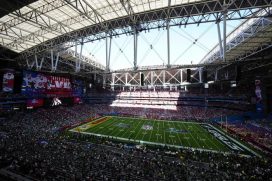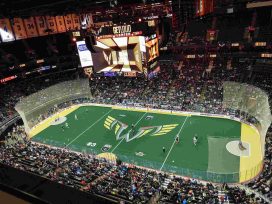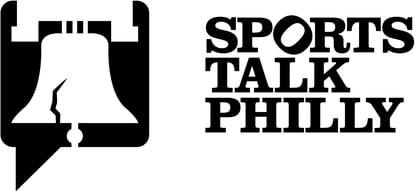Image Credit: Kevin Durso, Philliedelphia
On April 26, 2010 the Philadelphia Phillies officially signed their first baseman and cleanup hitter to a mammoth five-year, $125 million contract extension, more than a full season before his previous contract expired.
Roughly three years and some change later, general manager Ruben Amaro Jr.—whose name is signed all over that contract—is ready to throw Ryan Howard under the proverbial bus.
It has been no secret, either in Philadelphia or elsewhere, that Howard has not lived up to the lofty expectations set by that contract. While he has been one of the club's best hitters against right-handed pitching this season, his paltry .503 OPS leaves a burning question on the mind of fans and front office executives alike:
Is Ryan Howard a platoon player?
Statistically speaking, the answer is yes. Penciling Howard into the lineup against left-handed pitching has actually been a detriment to the Phillies this season. That's not something that you would expect out of a player making more than $100 million, especially not one who—some years back—would have been mentioned in the same breath as Albert Pujols and Prince Fielder as free agent, first base targets.
Well, they say hindsight is 20/20. Howard's contract was mocked by pundits at the moment it was announced and has gone from being a "burden" to an "albatross" at warp-speed. When asked if his superstar first baseman was now relegated to being a platoon player, Amaro had this to say to Comcast SportsNet:
"If Ryan Howard is now relegated to being a platoon player, he's a very expensive platoon player and he needs to be better. I think he knows it. I know he's struggling, I know he's not happy with his performance — neither are we. I think he's going to be better, but right now, he's just not doing the job."
Did the Phillies' famously smug general manager just admit to making a mistake? If you are able to read inbetween the lines and through the GM speak, it certainly sounds that way. But Amaro's honesty only raises more questions.
The first is obvious: What does this mean for Ryan Howard?
He has been tremendous against right-handed pitching, posting a slash line of .302/.357/.522 with eight home runs. It has been his sheer ineffectiveness against left-handed pitching that gives rise to the concept of a platoon—in this situation, John Mayberry Jr. and Kevin Frandsen logging some at-bats against lefties at first base.
That's the short-term plan. In the long run, the goal for the Phillies is obviously to get Howard comfortable to a point where he is successful against both right and left-handed pitching. But watching Howard hit lately, that doesn't appear to be in the cards.
At that point, you have to consider trading Howard to a team that is better equipped to utilize his talents, which leads to a second interesting Amaro quote:
"If we continue to play the way we play sporadically, then I'm going to have to consider being a seller. If we think that we're going to be playing a little bit better baseball, a better brand of baseball, and this is going to be a very important next eight or 10 games for us because we're playing our toughest opponents in the division, we're playing the Pirates who are an outstanding club. So this will be a very good gauge for us as to where we're going to be and where we are come the All-Star break and as we get closer and closer to July 31."
And the Phillies are certainly heading in the direction of becoming sellers, especially when you consider the fact that two Wild Cards are likely to come out of the talented National League Central and both the Atlanta Braves and Washington Nationals are better than the Phillies right now.
At that point, the Phillies may consider biting the bullet and trading Howard, but what team will take on an expensive, slow, defensively-limited first baseman in obvious and rapid decline? Not many teams will pay top dollar for a player best suited to be part of a designated hitter platoon.
The Phillies would have to eat a ton of salary to facilitate a deal—and that goes without mentioning that any interested team is going to be looking for a bargain. They'll want to take on as little salary as possible and give up a minimal amount of talent (prospects).
So if you're looking to summarize those quotes from Amaro, read them like this: Ryan Howard is making a ton of money and not doing the job. If we become sellers, and we likely will, Howard is a player that may be moved, but we also realize that this is unlikely and would not mind him to start playing like it's 2006 all over again.
If (when) the Phillies become sellers, they will have a ton of talent on the block, including Cliff Lee, Chase Utley, Michael Young, Carlos Ruiz and Jonathan Papelbon—each of whom could fetch a nice return.
The guy that makes the most sense to deal, however, is also the hardest pill to swallow for this club's GM. He'll hope that Howard figures it out fast.
Follow Greg on Twitter: @Greg_Pinto







